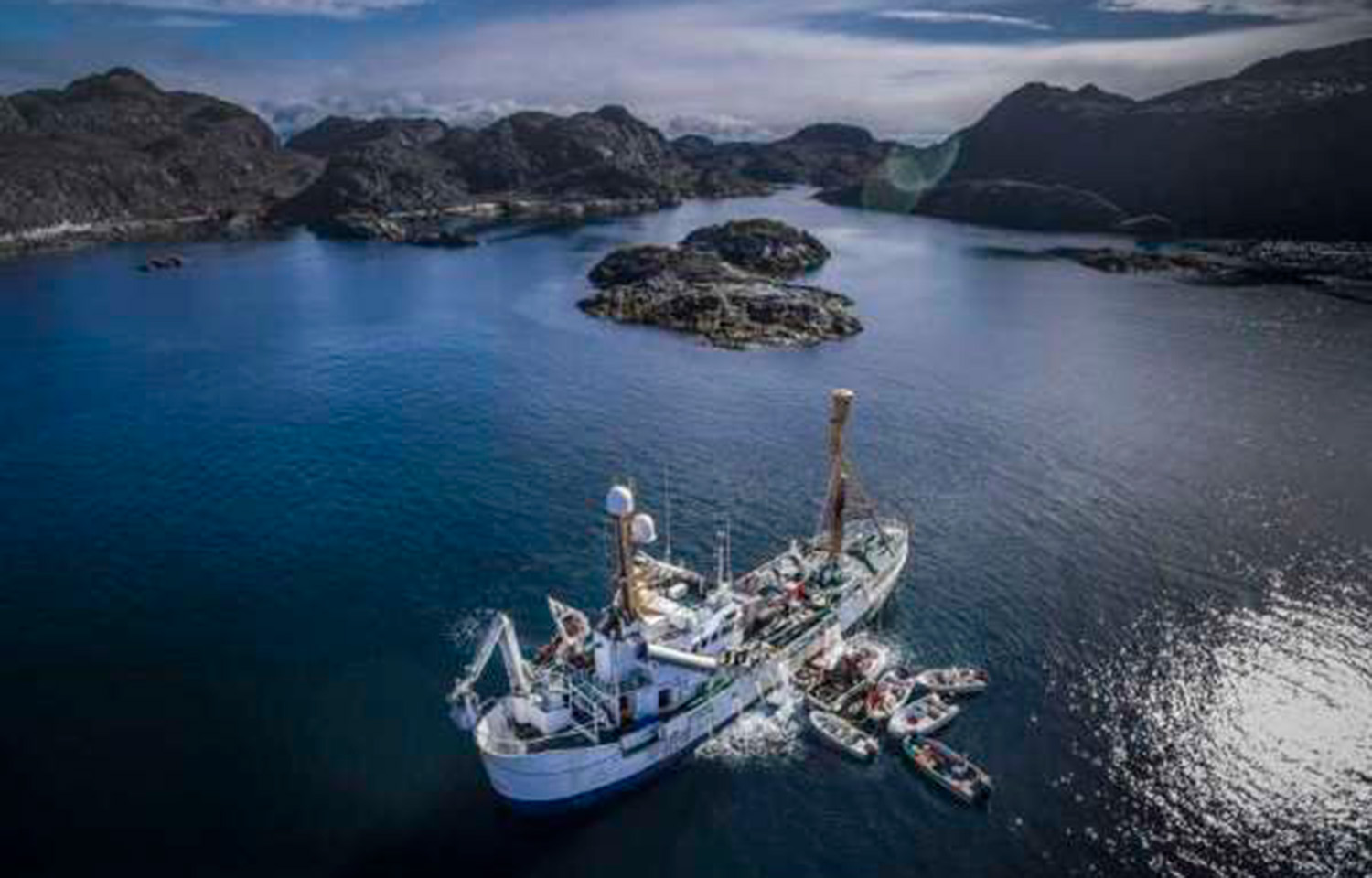Revisions to Greenland’s fisheries law were approved on 16 May and became law on 19 May, bringing changes to how Greenland’s seafood sector must operate moving forward.
The law, which has a 10-year-transition period, will require all companies conducting commercial fishing to be based in Greenland and create flexible individual species quotas that can fished or traded, according to Sermitsiaq. It will also institute minimum prices to be paid for fish and expand coastal fishing rights from 3 miles to 12 miles out to sea.
First introduced in November 2023, the bill has been hotly debated for months. Seafood accounts for 90 percent of Greenland’s exports by value and 30 percent by volume, and fishing is a vital commercial lifeline for many of Greenland’s isolated communities.
The law has been criticized by Royal Greenland and Polar Seafood Greenland – Greenland’s two largest seafood companies. No changes to Royal Greenland's shrimp quotas are included in the law, Royal Greenland Communications Head Merete told SeafoodSource, without making mention of its halibut quotas.
However, Polar Seafood said it will likely be forced to sell off one-third of its halibut and shrimp quotas, as private companies will be limited to hold 20 percent of the quota for each species and public companies will be allowed to hold up to 33 percent of a quota of any given species.
The effect of the law on the largest private company in Greenland – Polar Seafood – which contributes around DKK 440 million [USD 64 million, EUR 59 million] in tax revenues, resource interest, and dividend tax annually – is catastrophic,” Polar Seafood Greenland Chair Michael Binzer said. “This is a bit like when you buy a house, where a 30-year lock-in period has been agreed on the mortgage loan, you are notified by the mortgage bank that there is now only a 10-year term on your loan, and the contribution rate has otherwise increased by a large percentage.”
Binzer criticized exemptions in the law for Royal Greenland.
“The publicly owned Royal Greenland is exempted because they perform socially imposed tasks, despite the fact that we in Polar Seafood demonstrably have better financial key figures. But, this happens without us being able to gain insight into exactly what these tasks are and what it costs – in other words: direct political interference in a company's tasks without transparency. Or, you can choose to describe it as social policy wrapped in business policy but without public interference,” Binzer said in a LinkedIn post. “It challenges my perception of what a modern society based on the rule of law should stand for. I am struck by my sense of injustice – and a feeling that private capital must not be too successful in Greenland.”
Polar Seafood Greenland said approval of the new fisheries law will result in it having to close its shrimp factory in Aasiaat, Greenland, which employs around 100 workers.
Greenland Prime Minister Múte Bourup Egede, a supporter of the reforms, praised the law’s passage and said the government will make an effort to keep the Aasiaat plant open.
“Many different views were presented during the debate. Thank you for the many views [from] many who have supported and those who have been against the law,” he said on Facebook. “We shall immediately begin the work on implementing the law as well as carrying out the tasks imposed by [Greenland’s parliament], such as preserving fishermen’s livelihoods … and we shall immediately begin work on ensuring Aasiaat’s factory remains open. I have high expectations to keep the factory in Aasiaat, as there are people who want to maintain the supply of raw materials and who want to help develop solutions.”
Despite accusations that Royal Greenland is being treated in a favorable manner compared to Polar Seafood Greenland, on 17 May, Egede lambasted the management team of Royal Greenland at the company’s annual meeting.
“It cannot be right that a company owned by the Greenlandic people, which has to carry out a specific task in this country, also invests outside the country with losses of millions, which have no direct relevance to its core products, as for example in ...








